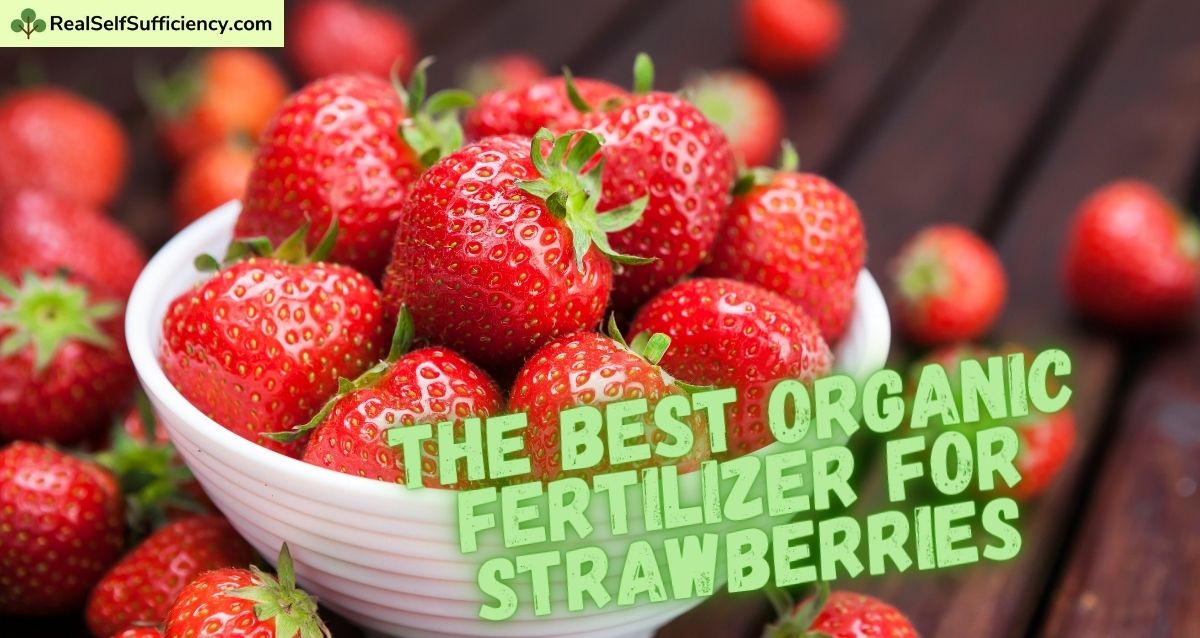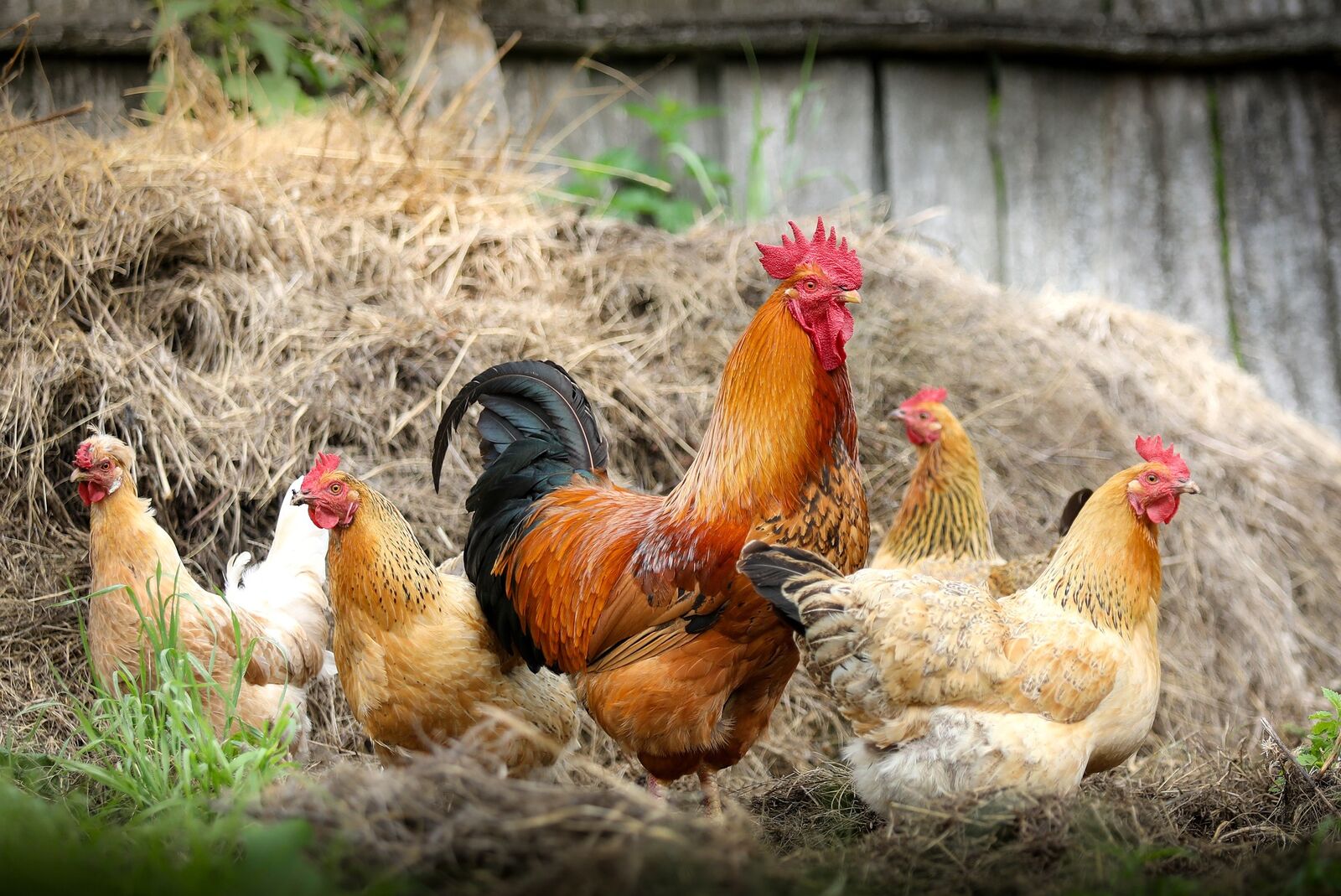Fertilization is essential so that you can expect a rich harvest from your strawberry plants. Strawberries differ in their nutrient requirements from other crops in your garden, so its important to know a few things. We give you tips on fertilizing strawberries with organic fertilizers. You can find out which fertilizers are suitable here in this article.
Growing large, sweet, juicy strawberries requires providing the plants with the right nutrients at the right time While synthetic fertilizers may produce decent results, organic options are better for the soil, plants, and berries The key is choosing natural fertilizers that supply key nutrients strawberries need without overdoing it.
Why Organic Fertilizer is Best for Strawberries
Organic fertilizers made from natural ingredients like manure, bone meal and compost slowly break down in the soil releasing a steady supply of nutrients. This prevents rapid growth spurts that can lead to weak, susceptible plants and bland fruit. Organic fertilizers also improve soil structure and microbial life, whereas synthetics can disrupt soil balance.
Strawberries prefer slightly acidic soil, around pH 5.5-6.5. Many organic fertilizers help maintain ideal acidity, while overuse of synthetics can raise pH over time. And since strawberries are often consumed fresh, avoiding synthetic chemicals reduces health risks.
Key Nutrients Strawberries Need
To produce an abundance of large, great-tasting berries, strawberries need:
-
Nitrogen for healthy leaves and plant growth, but not too much. Excess nitrogen causes lots of foliage but smaller yields.
-
Phosphorus for root development, flowering, and fruit production. Most critical early in growing season.
-
Potassium for fruit quality – improves flavor, sweetness, and shelf life. Lack of potassium leads to soft, bland berries.
-
Magnesium for photosynthesis and fruit formation.
-
Calcium strengthens cell walls for firm, crisp berries.
-
Trace amounts of boron help with pollination and fruit set.
The Best Organic Fertilizers for Strawberries
Compost
Compost made from plant materials like leaves, grass clippings, and vegetable scraps is a mild, balanced organic fertilizer. It releases nitrogen, phosphorus, potassium, and micronutrients slowly as it breaks down. Compost also improves soil texture and nutrient retention. Use compost to prepare beds before planting and as side dressing during growth.
Manure
Aged manure from cows, horses, sheep, goats, rabbits, or chickens, composted for 6-12 months, makes an excellent organic fertilizer. It provides nitrogen, phosphorus, and potassium over an extended period. Cow and rabbit manures are best for strawberries. Avoid fresh chicken manure as it’s too strong.
Blood Meal
Made from dried, powdered animal blood, this fertilizer is very high in nitrogen with few other nutrients. Sprinkle lightly around plants in early spring to boost growth without overdoing it. Adds organic matter to soil.
Bone Meal
Crushed, steamed bones provide calcium, phosphorus, and potassium. The gradual nutrient release prevents burning plants. Great for improving berry quality and soil structure. Adds long-term phosphorus.
Fish Emulsion
Fish scraps and residues blended into liquid fertilizer provide nitrogen, phosphorus, potassium and micronutrients. The smell fades quickly. Apply monthly for vigorous plants and bountiful berries. Adds trace nutrients often missing in soil.
Seaweed Extract
Made from kelp, this fertilizer contains potassium, magnesium, calcium, iron and zinc. It helps plants resist disease and tolerate stress. The nutrients promote fruit bud development for bigger yields.
Wood Ash
The residue from burning clean, untreated wood has potassium, calcium, magnesium, and trace minerals. It helps balance soil pH. Use sparingly, as excess can negatively impact soil biology.
Coffee Grounds
Used coffee grounds contain nitrogen, potassium, phosphorus, magnesium, and copper. They acidify soil and act as a mild fertilizer. Mix grounds into soil or compost pile. Can also place around plants to repel slugs.
When and How to Fertilize Strawberries
New plants – Prepare beds with 2-3 inches of aged compost before planting. Mix in a balanced organic fertilizer following soil test recommendations. This gives plants an initial nutrient boost.
Early spring – Top dress beds with 1-2 inches of compost, manure, or organic blend like fish meal. Sprinkle with blood meal or bone meal if plants need a nitrogen boost.
During growing season – Liquid organic fertilizers like compost tea, fish emulsion, or seaweed extract every 3-4 weeks prevent mid-season nutrient deficiencies.
After final harvest – Renew mulch and mix compost or manure into top few inches of soil. This fuels root and flower development for next year’s crop.
Avoid fertilizing right before main harvest, as it triggers excess foliage and poorer fruit quality.
Growing Sweet, Juicy Organic Strawberries
With the right organic fertilizers, proper soil nutrition, ample sunlight, and good moisture, it’s easy to grow big, delicious strawberries without synthetic chemicals. Pay close attention to plants’ needs throughout the seasons, test soil periodically, and your strawberry patch will thrive for years to come. The sweet taste of homegrown berries is worth the effort.

Fertilize Strawberries With Compost: What You Need to Keep In Mind
Compost is a well-known organic fertilizer and you are probably wondering whether you can fertilize your strawberry plants with compost. It is very difficult to give a general answer here, as the composition of compost varies greatly depending on what organic material you use in the compost.

The composition of your compost depends primarily on whether you add plant or animal matter to the compost. Animal waste in the form of manure usually causes the salt concentration in the compost to increase and should only be used with caution (especially chicken manure!). This is not so good for strawberries, as the proportion of water-soluble salt may then be too high and your plants will suffer as a result. In contrast, compost from green waste or organic waste contains fewer nutrient salts, although it still contains a significant amount. We therefore recommend using compost as a basic fertilizer, which you can work into the soil when planting or a few weeks later. Around 3 to 5 L/6 to 10.5 L of compost per m2/1.2 yd2 is sufficient.
Compost is quite balanced in terms of nutrients and contains nitrogen, phosphorus, potassium and trace elements. Compared to other organic fertilizers, the nitrogen content is significantly lower and only slowly available to plants. On average, green waste compost contains less nitrogen, phosphorus and potassium than compost from organic waste. With a basic fertilization with compost, your newly planted strawberry plants will be well supplied with the main nutrients phosphorus and potassium as well as trace elements and these will usually last until after the second harvest. Only nitrogen should be added moderately with horn shavings or other organic fertilizers if necessary. It is important that all composts are well matured. This ensures that all pathogens in the compost are killed and do not damage your plants.
How and When to Fertilize Strawberries
- Strawberries mainly need phosphorus and potassium, but also nitrogen for good growth. If they are over-fertilized with nitrogen, they become more susceptible to diseases.
- The right time to fertilize: During planting and in autumn after the last harvest in the second year; for everbearing strawberry varieties, additionally fertilize several times during the growing season (approx. every 4 to 6 weeks).
Best Strawberry Fertilizers! – Garden Quickie Episode 139
FAQ
What organic fertilizer is good for strawberries?
Fertilize Strawberries With Nettle Slurry
Nettle liquid manure is also a good organic liquid fertilizer that contains a lot of nitrogen, potassium and silicic acid. You can therefore also use nettle liquid manure to give your plants a boost during growth.
What do coffee grounds do for strawberry plants?
Because coffee grounds are slightly acidic, they are ideal for strawberries and other plants that prefer a slightly acidic soil. Although coffee grounds are high in nitrogen, they should not be used as the only fertiliser for strawberries, as they contain hardly any other nutrients.
What helps strawberries produce more fruit?
To maximize strawberry fruit production, focus on proper planting, watering, fertilization, and pest control. Ensure adequate sunlight, well-drained soil, and consider mulching to retain moisture and suppress weeds.
